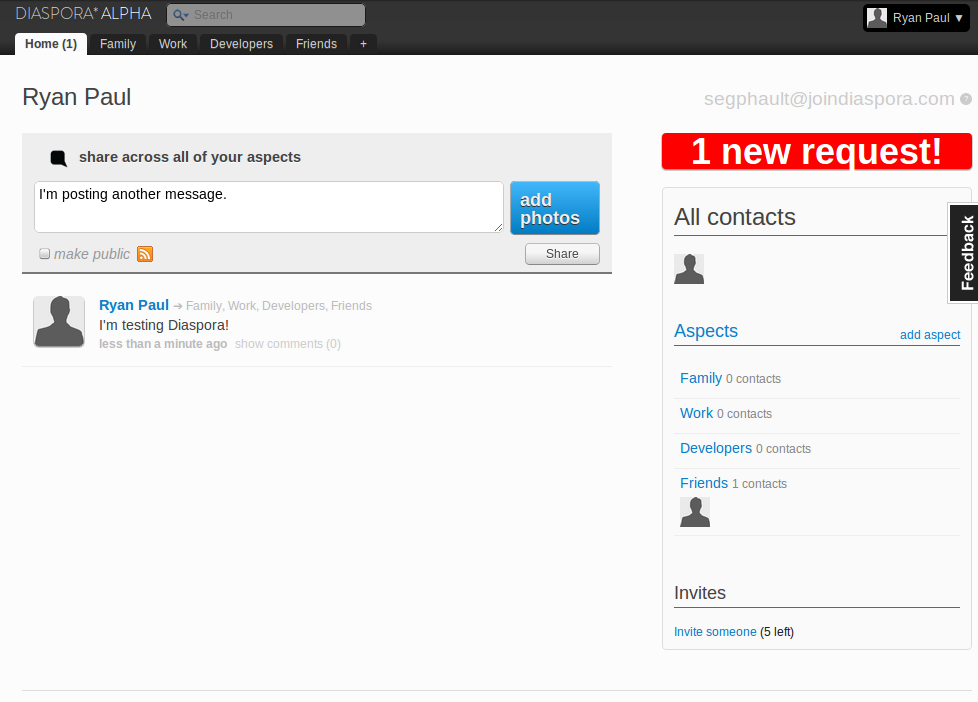The Diaspora project has launched a private alpha test of its open source social network. It is opening up its own hosted instance of Diaspora to a select group of testers, starting with people who contributed financial support when Diaspora was first getting off the ground. The initial group of participants can invite other people, and the developers will be opening up the service to more users each week.
Diaspora emerged as a response to the privacy concerns raised by mainstream social networking services. The aim of Diaspora is to create an open source social network alternative with decentralized architecture, giving end users more control over their private information and how it is shared with other people. The project was financed by individual contributions through the Kickstarter crowd-funding service.
When the first Diaspora code was first published in September, independent reviewers found some serious technical defects, including a number of security weaknesses. The developers say that the issues that were identified have been addressed and security has continued to be a major focus for the project.
Although the discovery of basic vulnerabilities obviously doesn't instill a lot of confidence, it's clear that the availability of source code and the transparency of development have made it easier for third parties to help find and fix those kinds of issues. In a blog post about the alpha launch, the Diaspora developers cite extensibility and code cleanliness as other high priorities.
Starting Cautiously
I got an invitation to test the hosted service (special thanks to Ryan Singer, who kindly gave me an invite) and was able to register an account. The Diaspora test server has already become a bit sluggish due to the increase in traffic caused by the private alpha launch. I initially thought that a private beta seemed like an odd approach for launching an open source application, but it makes sense in light of the early performance issues. The developers have opted to open up the service to the public gradually so that they can address the inevitable scalability challenges incrementally rather than having the server crushed on the first day.


 Loading comments...
Loading comments...
